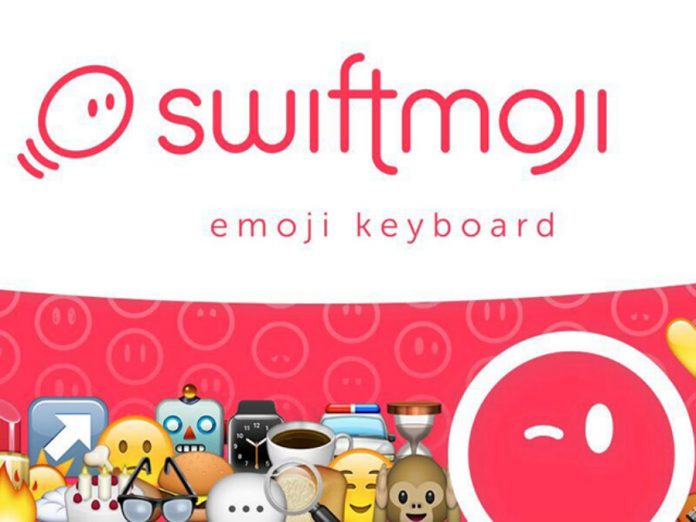
Following the footsteps of the text prediction apps that already exist like SwiftKey Keyboard or QuickType, Swiftmoji brings people the first emoji prediction app. Therefore targeting users tired of the hunt to find the desired emoji to match their text conversations.
Keyboard app maker Swiftkey, acquired by Microsoft for $250 million last February, unveiled its first product under the umbrella of Bill Gates’ company. Called Swiftmoji, the emoji-predicting keyboard app, which only supports the English language, can be downloaded for both iOS and Android systems for the moment.
Getting to know people’s emoji usage
According to the app’s description in Google Play, Swiftmoji provide its users with “the perfect emoji predictions based on what you’ve just typed”.
Emoji predictions will be initially based on Swiftkey’s keyboard usage data, but they will gradually adapt to each and every user’s emoji preferences. Swiftmoji comes in two presentations: an emoji prediction row placed above the keyboard’s word suggestions and a Facebook-like floating emoji row around the screen.
We're excited to introduce @Swiftmoji, the app that gives you #emoji predictions 🔮 based on what you've just typed! https://t.co/MXQSMRIQ9B
— Microsoft SwiftKey (@SwiftKey) July 20, 2016
Swiftmoji’s Beta version was a success
The release of the Swiftmoji was no surprise, as the Microsoft-owned app maker began testing their latest product back in May, releasing a private beta version through Google Play.
Users had to ask to become beta testers, and be lucky enough to be one of the few that would be selected by Swiftkey, to take a look at the new prediction app.
https://www.youtube.com/watch?v=aJ7NbFYAvFs
Swiftmoji was not the app maker’s first experiment, as they had done the same with other products before to see how users respond. However, contrary to the predictive app, previous emerging products had always been listed in the SwiftKey Greenhouse website, indicating the new app meant serious business.
Swiftkey’s most notable experiments were Clarity, a keyboard which focused on correcting whole phrases, and Neural Alpha, the world’s first keyboard to use neural networks instead of predictive algorithms to improve its words suggestions.
While the Clarity experiment reached its end as described in Google Play, Neural Alpha is still available. Nonetheless, it continues to be labeled a project claiming “ongoing support, updates, and fixes are not guaranteed.”
An emoji is worth a thousand words
One may think this emoji app is silly or unnecessary, others who already complain about text prediction apps will find it annoying. But the reality is that emojis is the equivalent to facial expressions, as they add emotional meaning or value to the otherwise one-dimensional text conversations.
Google's diverse #emoji for women at work approved by @Unicode: https://t.co/1afe5YyeqF via @verge pic.twitter.com/Q9I2LuwO6x
— Microsoft SwiftKey (@SwiftKey) July 14, 2016
And the Swiftmoji is only the beginning, as Gboard, Google’s new iOS keyboard has become another option for fast access to emojis, allowing users to find them via keyword search.
Source: TechCrunch











